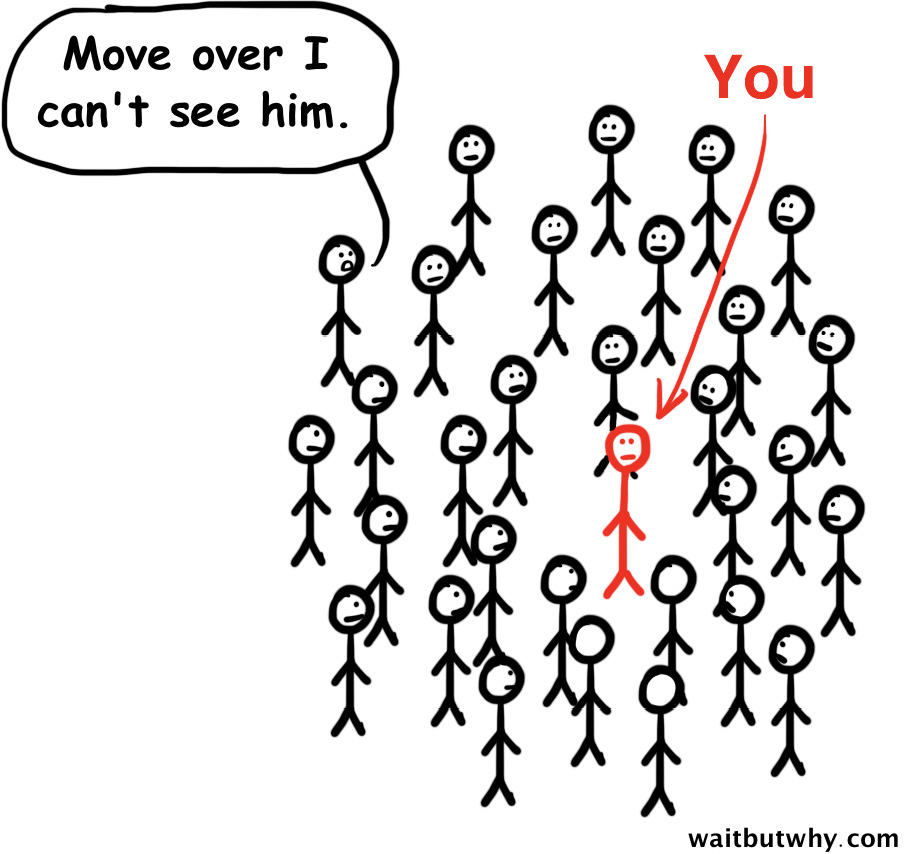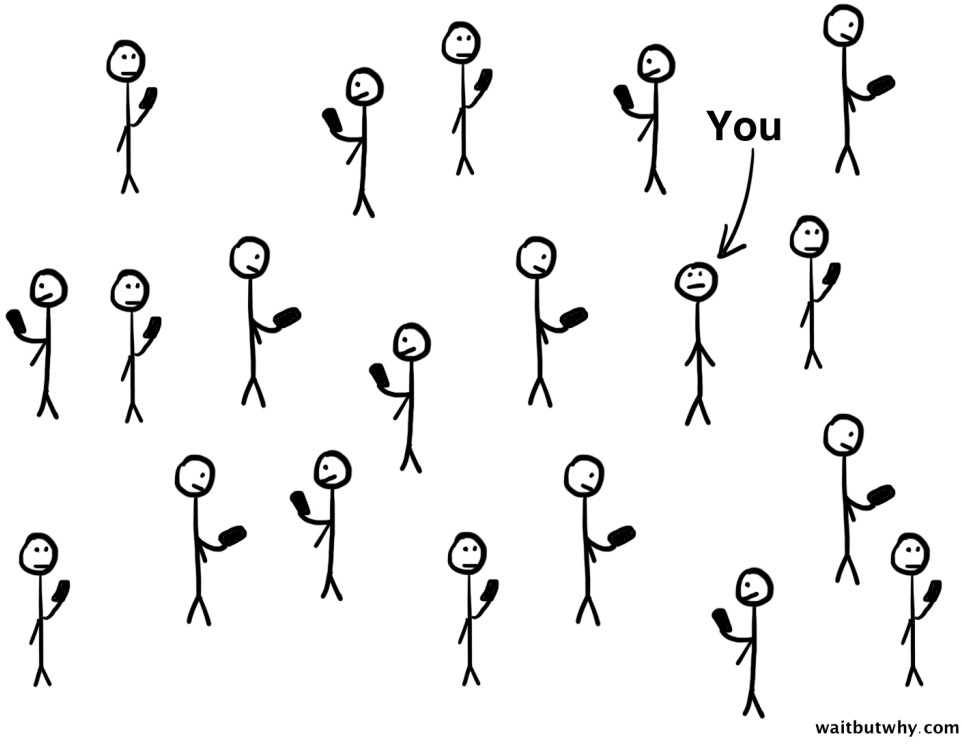4 The spotlight effect
Back in 2000, a strange term made its way into the world of psychology by way of the journal Current Directions in Psychological Science. The psychologists Thomas Gilovich and Kenneth Savitsky coined the term “spotlight effect.”
What’s the spotlight effect?
It’s the feeling that we’re being noticed, watched, observed, and, importantly, judged much more than we really are. Because we are the centers of our own worlds, we believe we’re the center of everyone else’s world, too.
Gilovich, at Cornell University, teamed up with Justin Kruger at the University of Illinois at Urbana-Champaign and Victoria Medvec at Northwestern University to look deeper into the spotlight effect. They took a group of Cornell students and asked them to estimate their abilities in the eyes of others in three areas: physical appearance, athletic accomplishment, and how well they played a video game.
Guess what? The participants constantly overestimated the extent to which their strengths and weaknesses would be noted by observers. Was that a big deal? Yes! The researchers said that fear of judgment can contribute to social anxiety and gnawing regrets.
So if we think the spotlight is always on us, but it isn’t, what’s the takeaway?
It’s simple.
Shift the spotlight.
Remember you’re under the belief the spotlight is shining on you and everyone in the darkened audience is staring and watching and waiting.
But they’re not.
So how can you mentally shift the spotlight away from the focus on yourself?
Tim Urban writes the incredibly popular blog Wait But Why, and one of his most widely shared posts is “Taming the Mammoth: Why You Should Stop Caring What Other People Think.” The post alone is worth the read, but he also adds two cartoons near the end that made me laugh out loud in recognition of what we’re talking about here.
The first cartoon shows how we think things are.
It features you as a stick figure surrounded by a huge mob of people all staring at you. This is how we think things are! It’s the spotlight effect. The caption says, “Everyone is talking about me and my life and just think about how much everyone will be talking about it if I do this risky or weird thing.”

The second cartoon shows how things actually are.
And how are things actually?
Like this:

The caption below the second cartoon says, “No one really cares that much about what you’re doing. People are highly self-absorbed.”
We believe there’s a spotlight on us.
But there isn’t.
When we fail, we think all eyes are on us. We think it’s all about us! Sucking at a job means being publicly humiliated and sleeping with a tray of club sandwiches or living in a box on the street. A bad breakup means no more relationships ever. One rejected college application means you’re clearly an airhead whose life is about to get stuck in a world of grueling, minimum-wage pain.
We take tiny strings of trouble and extrapolate them into huge problems with our entire identities always on the line.
And the younger we are, the more we do this since we have less experience to help us understand that things usually work out okay in the end. Once you get through one tough breakup, you’re a little better on the next one. Once you get through three, you’re a lot better. Once you suck at one job, you’re a little stronger the next time.
But that first failure really is terrible.